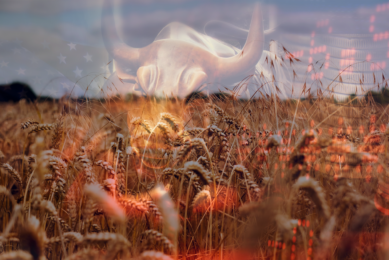US investigates how GM wheat came to be in Oregon field

The US Department of Agriculture’s (USDA) Animal and Plant Health Inspection Service (APHIS) are investigating how unapproved genetically modified when came to be a field in Oregon.
A farmer discovered the genetically modified plants on his farm and contacted Oregon State University, which notified USDA early this month. Tests showed that the wheat was glyphosate-resistant wheat plants. It was also discovered that it was the same strain that had been legally field tested by Monsanto in 16 states from 1998 to 2005. It was never approved.
Currently there are no varieties of GM wheat approved for sale or in commercial production in the US or anywhere else, making the discovery even more of a mystery. Now authorities have to find out if it is criminal wrongdoing or if the growth is widespread.
“We are taking this situation very seriously and have launched a formal investigation,” said Michael Firko, Acting Deputy Administrator for APHIS’ Biotechnology Regulatory Services, “Our first priority is to as quickly as possible determine the circumstances and extent of the situation and how it happened. We are collaborating with state, industry, and trading partners on this situation and are committed to providing timely information about our findings. USDA will put all necessary resources towards this investigation. ”
The discovery could have serious consequences for the US’s wheat industry if it is discovered that the wheat growth is widespread. Many countries around the world do not accept imports of GM foods, and the United States exports about half of its wheat crop.
According to the USDA this wheat variety does not pose a food safety concern. The Food and Drug Administration (FDA) completed a voluntary consultation on the safety of food and feed derived from this GE glyphosate-resistant wheat variety in 2004. For the consultation, the developer provided information to FDA to support the safety of this wheat variety. FDA completed the voluntary consultation with no further questions concerning the safety of grain and forage derived from this wheat, meaning that this variety is as safe as non-GE wheat currently on the market..











